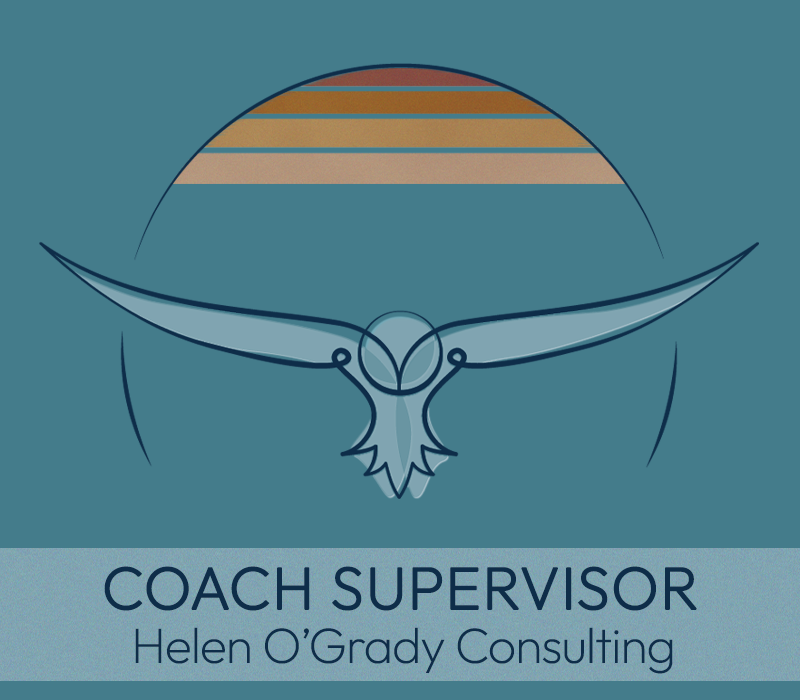

Get in touch if you would like Helen to join you on your podcast here.
|
Coaching Supervision Uncovered
An 11 Part Series with Helen O'Grady
Join Helen O'Grady and top coaching experts as they explore how supervision elevates coaching excellence, enhances reflective practice, supports wellbeing, and drives lasting professional development.
|
A Day in the Life of Helen O'Grady
Health and Social Care Coach

Maxine and Helen explore how coaching can transform leadership and client care in health and social care,
the emotional toll of frontline work, and how coaching supports burnout prevention and emotional wellbeing.
They also discuss the persistent funding challenges and why coaching should be prioritised in high-impact environments like the NHS,
social work and education.
Full of insights, inspiration and tips, Helen’s passion and care for coaching and supervision light up the conversation.
If you are feeling uncertain about coaching in any way or seeking a new perspective and purpose in your practice, this podcast episode is for you!

Story telling for Business
Get a grip. Keep going. Pull yourself together. You should be able to cope with this situation.
Ever hear a voice in your head saying that? If you do, you're not alone.
In fact, we say all sorts of unsympathetic and unhelpful things to ourselves, especially when it comes to work.
Things we'd probably never say to a colleague.
So how do we deal with this “inner-critic” who's determined to undermine our confidence and doesn't believe we are enough?
In the new episode of Storytelling for Business, Coach Supremo Helen O'Grady MCC discusses the stories we tell ourselves.
And how we can change the narrative.

The Coaching Inn
Moving into Coaching from Caring Professions
Helen O'Grady joins other experts this episode on The Coaching Inn. These experienced
coaches have transitioned into coaching from various caring professions. The conversation
delves into how their past experiences profoundly influence their current coaching practices.
Key themes explored include the nuances of emotional regulation, the valuable integration of
diverse professional backgrounds into the coaching domain, the critical role of language in
fostering effective coaching relationships, and the increasing recognition and impact of
neurodiversity in coaching.
Everyone reflects on their individual journeys, the specific
challenges encountered during their career transitions, and the insights gained along the
way. What is important is a coach's presence, the facilitation of client agency, and the ability
to navigate uncomfortable yet crucial conversations within the coaching process.

 Coaching Supervision Uncovered
Coaching Supervision Uncovered
An 11 Part Series with Helen O'Grady
Join Helen O’Grady and top coaching experts as they explore how supervision elevates coaching excellence, enhances reflective practice, supports wellbeing, and drives lasting professional development.
Get in touch if you would like Helen to join you on your podcast here.
|

A Day in the Life of Helen O'Grady: Health and Social Care Coach
Maxine and Helen explore how coaching can transform leadership and client care in health and social care,
the emotional toll of frontline work, and how coaching supports burnout prevention and emotional wellbeing.
They also discuss the persistent funding challenges and why coaching should be prioritised in high-impact environments like the NHS,
social work and education.
Full of insights, inspiration and tips, Helen’s passion and care for coaching and supervision light up the conversation.
If you are feeling uncertain about coaching in any way or seeking a new perspective and purpose in your practice, this podcast episode is for you!

Storytelling for Business
Get a grip. Keep going. Pull yourself together. You should be able to cope with this situation.
Ever hear a voice in your head saying that? If you do, you’re not alone.
In fact, we say all sorts of unsympathetic and unhelpful things to ourselves, especially when it comes to work.
Things we’d probably never say to a colleague.
So how do we deal with this “inner-critic” who’s determined to undermine our confidence and doesn’t believe we are enough?
In the new episode of Storytelling for Business, Coach Supremo Helen O'Grady MCC discusses the stories we tell ourselves.
And how we can change the narrative.

The Coaching Inn
Moving into Coaching from Caring Professions
Helen O'Grady joins other experts this episode on The Coaching Inn. These experienced
coaches have transitioned into coaching from various caring professions. The conversation
delves into how their past experiences profoundly influence their current coaching practices.
Key themes explored include the nuances of emotional regulation, the valuable integration of
diverse professional backgrounds into the coaching domain, the critical role of language in
fostering effective coaching relationships, and the increasing recognition and impact of
neurodiversity in coaching.
Everyone reflects on their individual journeys, the specific
challenges encountered during their career transitions, and the insights gained along the
way. What is important is a coach's presence, the facilitation of client agency, and the ability
to navigate uncomfortable yet crucial conversations within the coaching process.

Back to Top
|








 Ep 1 ~ What Supervision Really Means for Your Coaching Practice
Ep 1 ~ What Supervision Really Means for Your Coaching Practice


 Coaching Supervision Uncovered
Coaching Supervision Uncovered